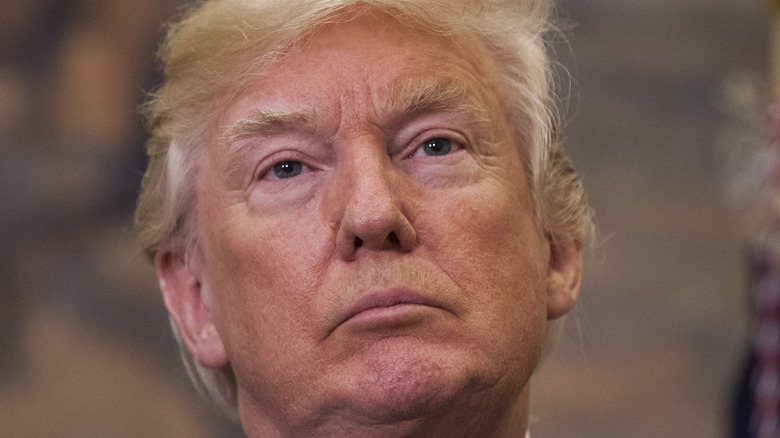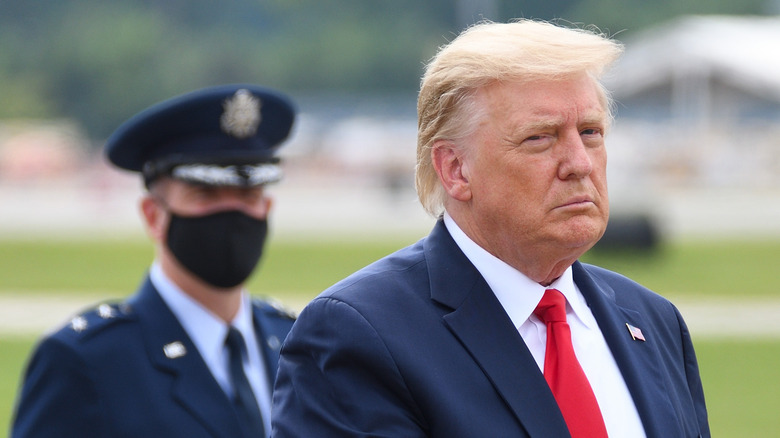Legal Expert Reveals Whether Donald Trump's FBI Raid Has Anything To Do With January 6
Former president Donald Trump released a statement on Monday, August 8, announcing that the FBI had unexpectedly searched his Mar-a-Lago home in Palm Beach, Florida. While Trump called the raid "not necessary or appropriate," others have speculated about the cause of the search, specifically if it had any connections with the insurrection at the Capitol on January 6, 2021. The former president's own vice president has even expressed worry about the FBI's interest in Trump's Mar-a-Lago home. "I share the deep concern of millions of Americans over the unprecedented search of the personal residence of President Trump," Mike Pence said, per USA Today.
While the Congressional January 6 committee continues looking into text messages and testimony from a range of sources — including the Secret Service and Alex Jones – a federal judge sentenced one right-wing recruiter and insurrectionist to more than seven years in prison, per The Washington Post. The continued investigations into January 6 have some wondering: Did the FBI raid at Mar-a-Lago have anything to do with the insurrection?
Legal expert says FBI raid likely wasn't about the insurrection
While the FBI's search of Donald Trump's Mar-a-Lago home is unprecedented, there is not strong evidence tying the raid to January 6, former federal prosecutor Neama Rahmani, president of West Coast Trial Lawyers, said. "Every indication so far is that this is related to how Trump might have mishandled classified documents," Rahmani explained, "and in that sense it's less interesting than if it was directly related to the January 6 investigation."
But just because the FBI's search likely wasn't about January 6 does not mean that the former president is out of the woods. This search warrant would have been approved by Attorney General Merrick Garland, Rahmani said. "There's no way the FBI raids Trump's home without [a] sign off of the attorney general," Rahmani explained.
If Trump is charged with breaking any federal law, it would be because of suspicion he had destroyed or misused White House documents, breaking a law written under Title 18, U.S. Code 2071. That charge carries a maximum sentence of three years, but a provision within the law bars someone convicted of this crime from holding public office. "The statute has a provision that says you can't hold public office," Rahmani said. If Trump were to be indicted and found guilty, he'd lose any future attempts to hold the presidency again.
While it seems unlikely that the FBI's raid is connected to January 6, Trump could still find himself treading into uncharted legal and political waters.

